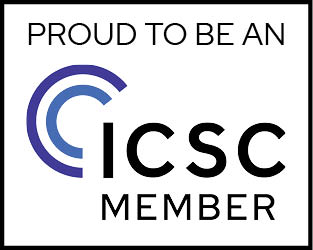Navigate the Foreign-Investment Market
Private lenders can help brokers overcome the obstacles of international deals
Imagine you have a client with 12 acres of highly sought-after waterfront property in Barbados who wants to develop a residential high-rise building. Or maybe you have a client with an opportunity to buy a promising but struggling strip mall in Jamaica, but the auction is next week, and they need $5 million to even be in the running.
If these investment opportunities were in the U.S., you would likely have several traditional- and alternative-lending options to choose from. Once the opportunity crosses international borders, however, many options disappear. How are you, as a commercial mortgage broker, going to get funding?
Borrowers in need of capital will be hard-pressed to find a commercial mortgage lender willing to fund opportunities abroad. That’s the case no matter how lucrative these prospects may be.
Mortgage brokers who work on international deals should know about the barriers for both traditional and hard money lenders that keep them from financing these opportunities. And, when it comes to hard money, they should look for an experienced lender that can successfully navigate this tricky marketplace.

Lender skepticism
When it comes to commercial real estate investments, there’s certainly no shortage of lucrative opportunities outside the U.S., whether it’s related to multifamily housing, hotels and resorts, or even — in rare instances — raw land. Continued economic and tourism growth abroad is certainly driving the need for foreign capital, but many obstacles remain for lenders who need guarantees that their investments will pay off.
A borrower may need working capital, to pay off a debt or to simply purchase a property. Regardless, a lender seeking to fund such real estate opportunities abroad requires that far more scrutiny and due diligence be conducted than a lender funding a real estate deal located in the U.S. A lender needs to know that the project will succeed, which ensures that the loan will be repaid.
To achieve this, direct lenders require a clear title, an up-to-date appraisal and other key documentation that ensures the loan will be used in a sound, responsible and legal manner. They’ll often want to see more information about the property itself, rather than information about the borrower.
These standards are harder to enforce once lenders cross borders into foreign countries. Laws regulating foreclosures, purchase and sale approvals, and other essential parts of the transaction process, for example, can be vastly different than those in the U.S. They can even vary greatly from region to region within the same country. Any language barriers make these obstacles even harder to overcome.
Complicating factors
Many lenders are unsure how to evaluate opportunities in real estate markets in which they are not well-versed. Analyzing demand for a property is much more difficult from thousands of miles away. On-the-ground knowledge of desirable neighborhoods and real estate trends play a part in an accurate appraisal. Without that firsthand knowledge, many lenders are not willing to risk their funds on something with which they do not have hands-on experience.
Currency fluctuations add yet another dimension that complicates an already complex landscape. A foreign currency’s strength against the dollar is susceptible to market volatility, so severe shifts can impact the value of a property or even tank a deal. What happens if a currency’s decline in value jeopardizes an entire real estate project and loan payments can no longer be made? Understandably, many lenders aren’t willing to open themselves up to that kind of risk.
Lenders also need to keep an eye on a foreign country’s political situation. The value of currency or the asset in question may not stabilize in politically volatile countries. From an event as ordinary as a change in administration, to something as extreme as a military coup, these vulnerabilities can be scary to a lender, who may not be repaid due to circumstances beyond the borrower’s control.
If a borrower defaults, a lender could be left holding the bag. Worse, if the property in question was accepted as collateral, lenders will need to coordinate a sale in a country with completely different rules for buying and selling real estate. Simply put, it’s a headache that many lenders don’t want to deal with.
Limited options
When it comes to international real estate deals, a borrower’s search is limited from the start as all traditional lenders and many private/hard money lenders are off the table. In the case of the few U.S. lenders willing to make a loan on foreign real estate, commercial mortgage brokers and borrowers should first and foremost look for signs of that lender’s past success.
Borrowers should partner with hard money lenders that have a strong history of closing loans abroad. As previously mentioned, the many issues lenders face internationally make it impossible for them to simply jump into this market. Lenders with a track record of success, however, have not only proven they can make these complicated deals happen, they have shown they have the infrastructure in place to repeat that success with new clients.
Brokers also should ensure the lender uses an internationally recognized and respected appraiser. The right appraiser for foreign real estate holds up against the U.S.-based lender’s scrutiny and utilizes expert-level knowledge of the country in which the borrower wants to use the loan proceeds. This type of appraisal ensures that both the borrower and lender will get a full picture of the property’s true value.
Rising markets
The world truly is a real estate investor’s oyster right now, with many lucrative opportunities popping up in dozens of countries. Here are three places that have shown significant promise for borrowers who may be in need of capital for real estate investments outside American borders.
The Caribbean. Jamaica and other countries in the Caribbean are experiencing slow economic growth. Ironically, this is mainly due to the lack of foreign-capital investments from the U.S. and other wealthy countries. The growth of resorts, golf courses and other vacation destinations in places like the Dominican Republic, St. Martin and the U.S. Virgin Islands, however, make this region an enticing place for developers to build new properties or expand existing ones.
Reeling from recent natural disasters, countries in this region are eager to rebuild, and private capital is sorely needed to fund the projects that will help them do so. Additionally, the Caribbean is close enough to the U.S. that traveling to a prospective property is not a significant burden for many American-based investors or lenders.
Colombia. This South American country has generated record-breaking tourism revenue following the signing of a 2016 peace treaty between the government and the FARC guerrilla movement. Tourism in Colombia brought in more than $5.7 billion in 2017, opening opportunities to invest in hotels, shopping centers and other popular tourist destinations. Additionally, the Colombian government has recently invested more than 1 trillion Colombian pesos (about $315 million) into the country’s tourism infrastructure, connecting major cities and ports to rural areas for the first time.
Canada. Our neighbors to the north present an alluring opportunity for developers and other real estate professionals who wish to enter or expand into the Canadian market. Strong forecasts for senior housing and other growing property types are creating a market hungry for new construction, as well as property rehabilitation and repositioning — especially in underserved areas where these projects are predicted to thrive.
• • •
For those looking to buy or refinance property, or to complete new construction, hard money is the only available option to secure funding in an international market. But it’s not enough to simply find the funding. A direct private lender also must be educated in the world of foreign lending so they can provide the necessary support to navigate the web of regulations that can ensnare overseas deals.
Most importantly, hands-on experience is a prerequisite. Direct private lenders must have a proven, demonstrated ability to close loans abroad. It not only shows that they have built the right relationships, but that they can successfully close yet another loan for your client’s project.







